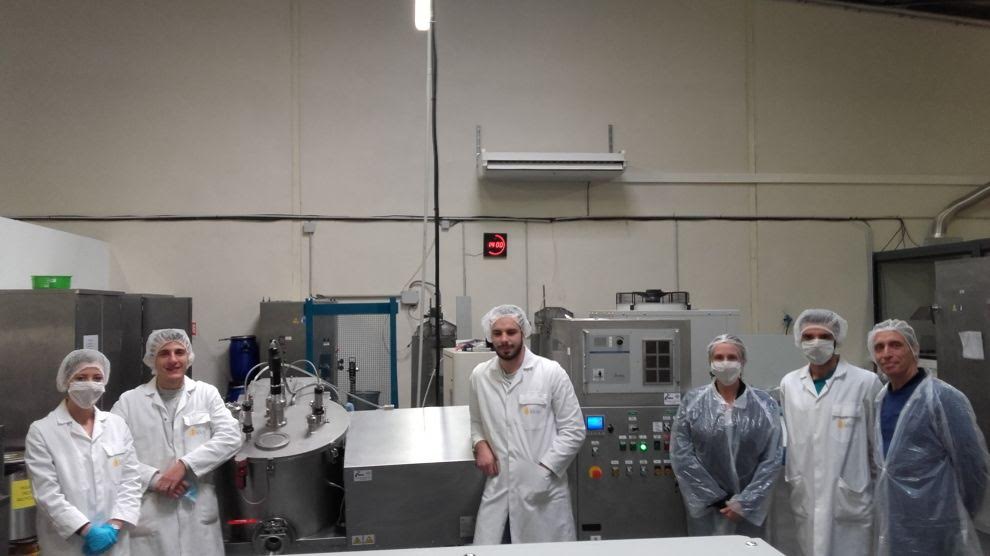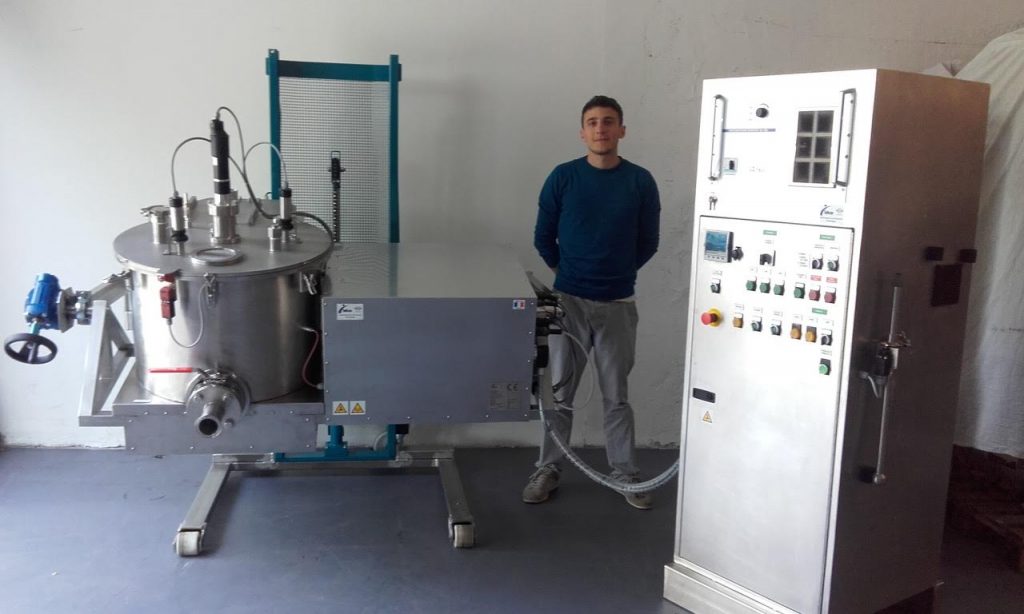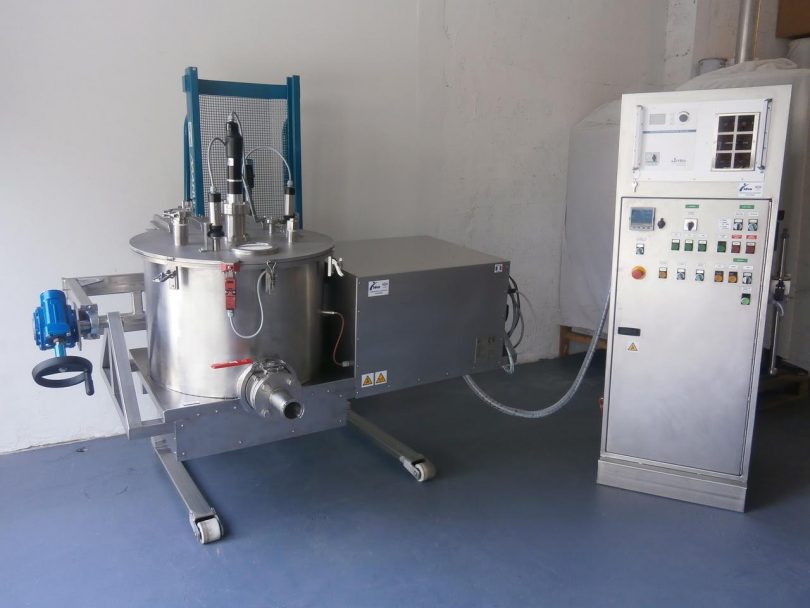This story presents trials that are testing the efficacy of IDCO Microwave Technology.
Industrial Microwaves – IDCO is definitely drawing interest from cannabis processing companies within the United States. Cannabis extraction trials using IDCO Microwave Technology began last week in Illinois. Because IDCO is based in France these extractors have never been used to pull cannabis terpenes and cannabinoids from fresh cut plant material. While fresh frozen material will work, product harvested right off the plant is preferable. With other crops, IDCO’s systems excel at essential oil extraction. This rings particularly true when it comes to terpene recovery.
The E200 Pilot is the extraction system model being used to conduct the trials and can be seen on the initial IDCO piece I wrote, and can be found here on the Terpenes and Testing Magazine blog. The video in that post shows an earlier extractor model. David Ittel from Cultivation Gear is the North American representative for IDCO’s Extraction Systems. He is available to answer questions and introduce people from the industry to the team at IDCO.

When we chatted with him Ittel explained to us, “The first trials will use the solvent-less method which only works with turgid plant material. Along with essential oil, the solventless extraction method produces a co-product. It is a clear fragrant floral water (hydrosol), derived solely from the freshly harvested plant material. Beverages, Cosmetics, and edibles are potential areas of use for this uniquely pure floral water.”
As Ittel states above, this machine has worked perfectly for a solvent-less concentration of terpenes. The trials will get more specific to this industry, looking into the best methods for cannabis extraction. This method has some similarities to steam distillation, but the process is much faster and produces a product with a fragrance closer to that of the source material. The E200 just uses the moisture from the freshly cut plant material to move the terpene molecules to an internal or external condenser. This is where the water condenses and the essential oils float to the top.
So now we are all wondering, what about the cannabinoids? Trials will answer that.
David informed Terpenes and Testing that Ultrasound-assisted microwave trials using solvents such as, but not limited to, refined olive, coconut and hemp oils are also scheduled. This is one of the methods used in the European pharmaceutical and cosmetic industries and he predicts this method will be very successful at extracting available cannabinoids and terpenes.
According to the experts, the efficacy trials will help determine what value this equipment can bring to the cannabis industry outside of capacity and speed. For large-scale field crops, IDCO offers continuous feed systems which is what I believe can make these extractors very unique to the Cannabis industry. This can only be answered by the trials to come.
Dave Ittel’s final thoughts on the trials regarded their core goals,”I am currently going to focus on just 3 of the methods that this equipment is capable of. The first is solvent-less which uses all fresh material. The second is ultrasound-assisted microwave that will be with dried material submerged in a solvent that can be kept cool because it is relatively microwave transparent. The third and last method is also with dried material. It uses a more polar solvent that does react to microwaves. The technique used is called thin film extraction. By spraying the solvent in a thin film it reduces the microwaves effect on the solvent.”









